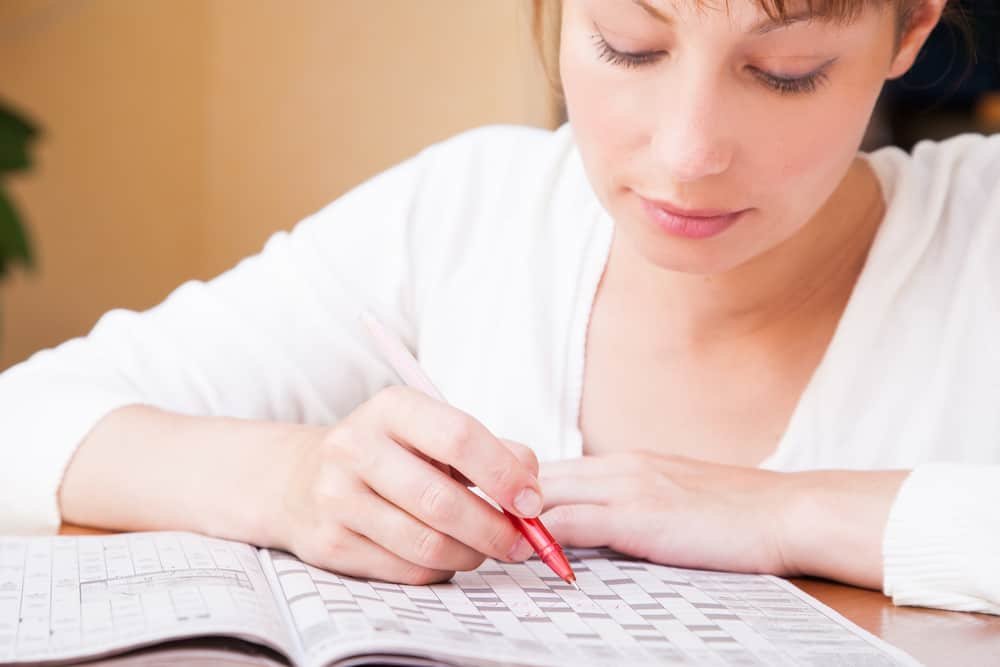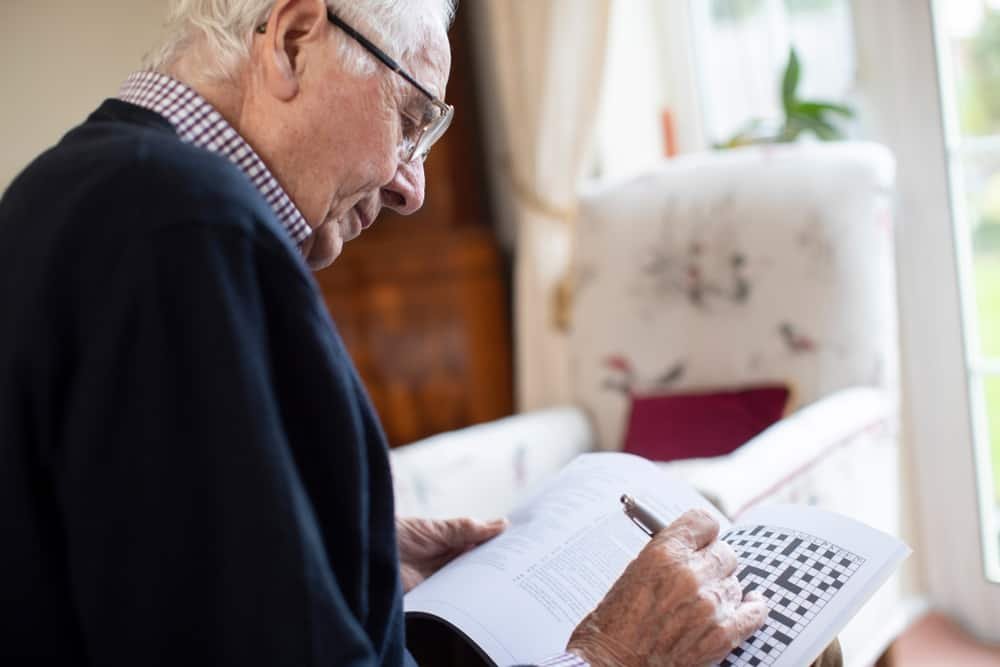Last Updated on January 7, 2024 by Gamesver Team and JC Franco

If you think that you need to be a crossword puzzle pro to effectively solve a crossword puzzle, you are wrong. By keeping a few tips in mind and being strategic about your approach to crossword puzzle solving, you can zip through a crossword puzzle and derive the most possible enjoyment from it. Because I enjoy crosswords so much and because I too started at the beginning with no clue about what I was doing, I would like to share my top tips for effective crossword puzzle solving with you.
There is nothing I enjoy more than successfully solving a crossword puzzle. In fact, one of my biggest frustrations in my life was ditching a puzzle just because I could not figure out a few of the answers. If you have experienced a similar disappointment, you will know what it feels like. Similarly, one of the times in my life when I have experienced pure satisfaction and a sense of achievement has been when I have solved an entire crossword puzzle. It really does feel good!
To improve your chances of solving a crossword puzzle, use the 18 helpful tips mentioned below.
These are 18 helpful tips and tricks for solving crossword puzzles:
Content
Toggle1. Do not rush it.

One of the first mistakes I made when I first started doing crossword puzzles was to rush it. For some reason, I placed more focus on finishing the puzzle quickly than I did on actually deriving enjoyment from it. Over time I have learned to slow down and take it easy. This has helped me to begin thinking answers through carefully and being more strategic in my overall approach.
2. Give yourself a break; use a pencil.
When you do a crossword puzzle in pen, it can feel like a serious commitment. Give yourself some room to make a mistake or take a stab at an answer by using a pencil. If you find that the answer is wrong, you can erase it and put the correct answer in – no harm done.
3. Choose your crossword puzzle day strategically.
If you do the typical newspaper crossword puzzle from the likes of The Times, you need to choose your puzzle day carefully. Some puzzles are harder than others and it all depends on the day of the week. Many people think that the Sunday crossword published in the New York Times is the most difficult, but as it turns out, Saturday crossword puzzles are the most challenging. If you want a quick and easy puzzle, choose a Monday crossword puzzle.
4. Do the easiest clues first (these are the fill-in-the-blank clues).
The easiest answers to guess are from the fill-in-the-blank clues. When you get your crossword puzzle in front of you, locate all of these clues and try to figure out those answers first.

5. The same tense applies to the question and answer.
The tense of the clue is a clue in itself. The answer will have the very same tense as the clue. When you see a clue ending in “ed”, you can safely assume that the answer ends in “ed” too.
6. Keep an eye out for question marks, which denote a play on words.
If you see a question mark at the end of a clue, it usually means that you have your work cut out for you. Often this means that you are in for a play on words. Good luck!
7. Stuck? Take a break.
Personally, when I cannot figure out the answers, I start to get frustrated. It can become so overwhelming that I abandon the puzzle. If you get stuck, take a break. Walk away from the puzzle, refresh your mind, and come back to it later.
8. Look up answers when you can’t go any further.
Many people assume that looking up the answer to a clue is taboo when it comes to crossword puzzles. That is simply not true. Solving a crossword puzzle is all about expanding your knowledge, and if you have to look something up to do that; that is completely fine. However, do not be too quick to look answers up. Wait until you absolutely cannot go any further and then look up one answer. Hopefully, finding out that one answer will spur you on to solving the other unsolved clues.
9. Keep an eye out for abbreviations in the clues.
As it turns out, if there is an abbreviation in the clue, there will be an abbreviation in the answer. This can make filling in some of the squares a lot easier.
10. Be brave and guess.
If the answer seems obvious, but you are not entirely sure, take a guess. Pencil the answer in and see how the rest of the clues fit in with that answer.
11. Work in strategic clusters of columns.

Treat every square on the grid-like an interconnected piece of a spider web. Every answer to every clue is connected to the neighboring answers, so when you pick up on one letter, it gives way to other answers around it. Start in one corner of the grid and systematically work through the answers until you become stumped. Then, head off to another corner and do the same. This is a great strategy for pulling the crossword together quickly.
12. Skip over the ones you do not know, for now.
One of the best strategies to speeding up the entire process is to quickly scan through the clues. Fill in the ones that you immediately know the answers to and then come back to the ones that need a bit more thinking or reasoning. This means that you can bulk out your grid before you get down to the more challenging clues.
13. Check spelling consistently.
I have personally experienced the frustration of an unsolved crossword puzzle due to a silly spelling mistake. Making a spelling error on a crossword puzzle could cost you the entire grid. Use a dictionary to make sure that you are spelling each and every word correctly.
14. Look for 3, 4, and 5 letter words.
The English language may seem extensive, but it is actually somewhat limited. With 3, 4, and 5 letter words on the grid, there are very few possible acceptable answers. Finding out what these are can make solving the puzzle quicker and easier.
15. Be on the lookout and beware of homonyms.
The Oxford English Dictionary defines homonym as follows: “each of two or more words having the same spelling or pronunciation but different meanings and origins”. These are quite popular in crossword puzzles, so keep an eye on them.
16. Note the theme, but do not rely on it.

If the crossword puzzle has a theme, some of the answers (usually the longer answers) will be related to the theme, but not all of the answers. If you try to come up with answers that are all themed, you are going to fall short.
17. Use Crosswordese.com.
Crosswordese.com is an online resource featuring words that often appear in US crossword puzzles, but do not typically come up in everyday conversation.
18. Get social about clue solving.
You can use your missing answers to get a bit more social with your family and friends. You can solve crossword puzzles together, or reach out to someone to ask them for advice on the answer. This is a great conversation starter and may even lead to the solving of other clues on your grid. Crossword puzzles are known to help people bond better – and I fully believe that they do.
Solve Crossword Puzzles Quick and Easy
It is not always about what you know, but more about how you go about it. Solving a crossword puzzle is not always easy. One thing is for sure; you will always learn something new with each completed crossword puzzle. By following these tips, you can increase your chances of solving even the most difficult or cryptic crossword puzzles.
Now that you have these helpful tips at your disposal, you can solve crossword puzzles quickly and easily. If you find yourself struggling, check through these tips once more. Good luck!
This article was co-authored by our team of in-house and freelance writers, and reviewed by our editors, who enjoy sharing their knowledge about their favorite games with others!
-
Gamesver Team
-
Gamesver Team
-
Gamesver Team
-
Gamesver Team
-
Gamesver Team
-
Gamesver Team
-
Gamesver Team
-
Gamesver Team
-
Gamesver Team
-
Gamesver Team
-
Gamesver Team
-
Gamesver Team
-
Gamesver Team
-
Gamesver Team
-
Gamesver Team
-
Gamesver Team
-
Gamesver Team
-
Gamesver Team
-
Gamesver Team
-
Gamesver Team
-
Gamesver Team
-
Gamesver Team
-
Gamesver Team
-
Gamesver Team
-
Gamesver Team
-
Gamesver Team
-
Gamesver Team
-
Gamesver Team
-
Gamesver Team
-
Gamesver Team
-
Gamesver Team
-
Gamesver Team
-
Gamesver Team
-
Gamesver Team
-
Gamesver Team
-
Gamesver Team
-
Gamesver Team
-
Gamesver Team
-
Gamesver Team
-
Gamesver Team
-
Gamesver Team
-
Gamesver Team
-
Gamesver Team
-
Gamesver Team
-
Gamesver Team
-
Gamesver Team
-
Gamesver Team
-
Gamesver Team
-
Gamesver Team
-
Gamesver Team
-
Gamesver Team
-
Gamesver Team
-
Gamesver Team
-
Gamesver Team
-
Gamesver Team
-
Gamesver Team
-
Gamesver Team
-
Gamesver Team
-
Gamesver Team
-
Gamesver Team
JC Franco
JC Franco serves as a New York-based editor for Gamesver. His interest for board games centers around chess, a pursuit he began in elementary school at the age of 9. Holding a Bachelor’s degree in Business from Mercyhurst University, JC brings a blend of business acumen and creative insight to his role. Beyond his editorial endeavors, he is a certified USPTA professional, imparting his knowledge in tennis to enthusiasts across the New York City Metropolitan area.

